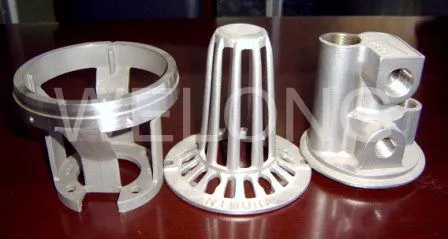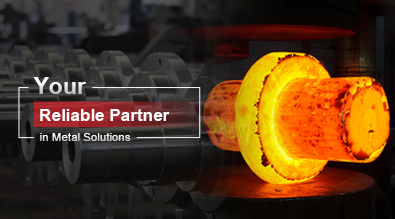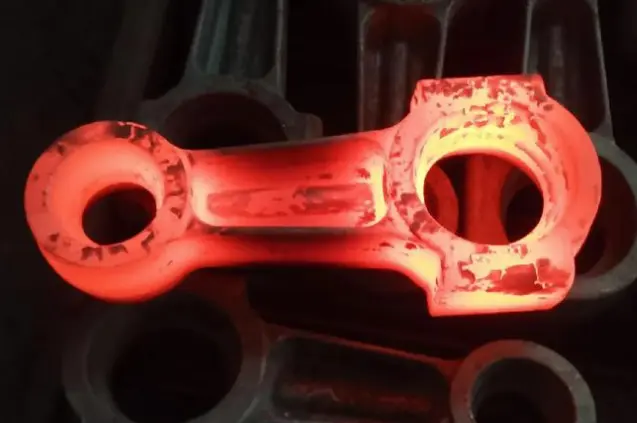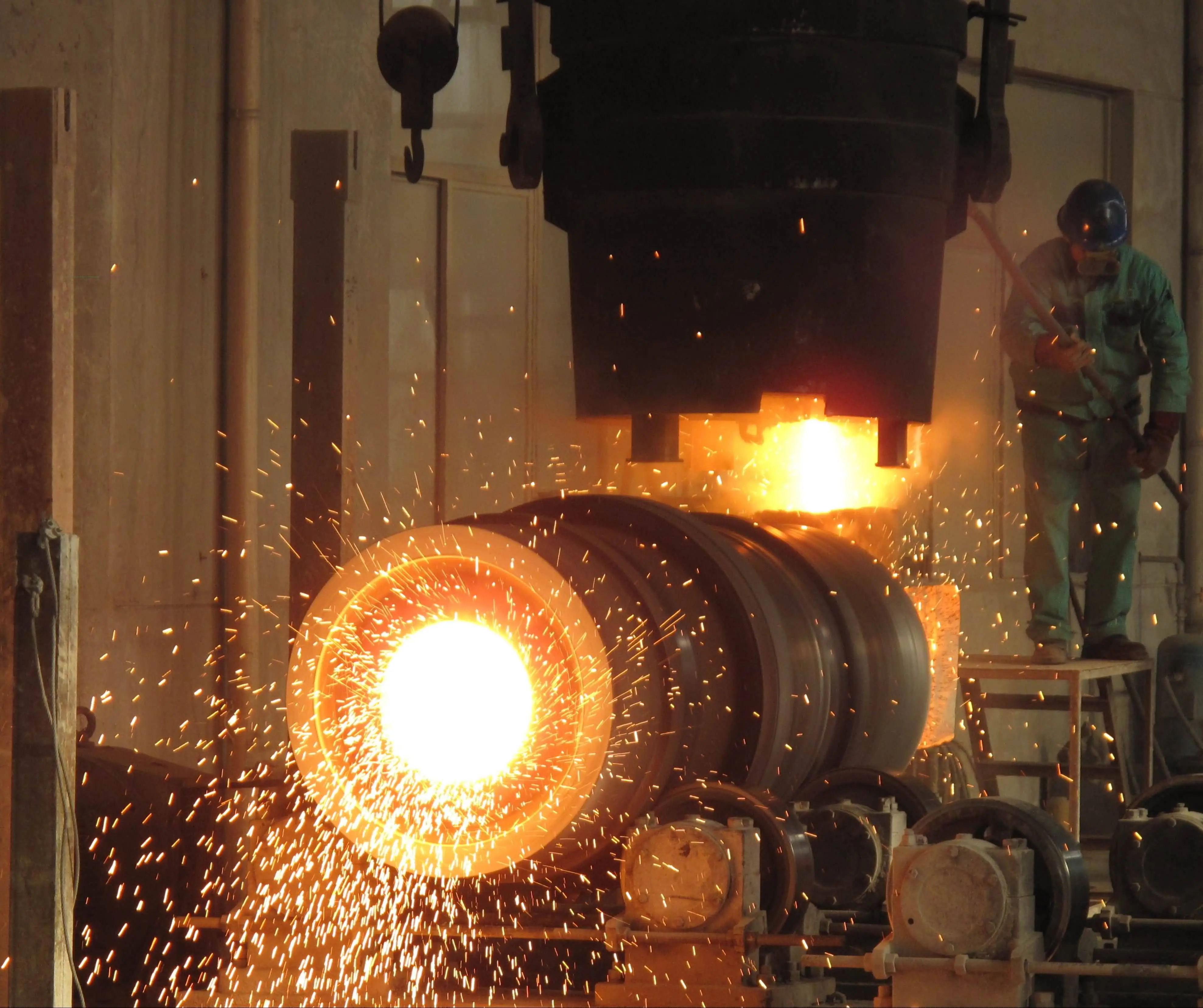What Sets the Best Precision Casting Manufacturers Apart?
In the world of manufacturing, precision casting has emerged as a crucial process for producing high-quality, complex metal parts with exceptional accuracy. As industries demand increasingly sophisticated components, the role of precision casting manufacturers has become more critical than ever. What sets the best precision casting manufacturers apart from the rest? It's a combination of advanced technology, unparalleled expertise, and a commitment to quality that distinguishes top-tier providers in this field. These manufacturers leverage state-of-the-art equipment, innovative techniques, and decades of experience to deliver parts that meet the most stringent specifications. From aerospace to medical devices, the best precision casting manufacturers are capable of producing intricate components with tight tolerances, superior surface finishes, and consistent quality. Their ability to work with a wide range of materials, optimize designs for manufacturability, and provide comprehensive solutions from prototyping to high-volume production sets them apart in a competitive market.

What are the Key Technological Advancements in Precision Casting?
How has 3D Printing Revolutionized Precision Casting?
The integration of 3D printing technology has significantly transformed the precision casting landscape. Advanced 3D printers now enable manufacturers to create intricate wax patterns with unprecedented speed and accuracy. This innovation in precision casting has drastically reduced lead times for prototyping and small-batch production. By eliminating the need for traditional tooling in pattern creation, 3D printing allows for rapid design iterations and cost-effective production of complex geometries that were previously challenging or impossible to achieve. The precision casting process benefits from the ability to produce highly detailed patterns with tight tolerances, resulting in final cast parts that require minimal post-processing. This technological advancement has opened up new possibilities for customization and optimization in industries such as aerospace, automotive, and medical device manufacturing.
What Role Does Computer Simulation Play in Enhancing Precision Casting?
Computer simulation has become an indispensable tool in the precision casting industry, revolutionizing the way manufacturers approach mold design and process optimization. Advanced simulation software allows engineers to model the entire casting process virtually, predicting potential defects and optimizing parameters before a single mold is created. This capability in precision casting significantly reduces trial-and-error cycles, minimizes material waste, and improves overall part quality. Simulations can accurately predict metal flow, solidification patterns, and thermal gradients, enabling manufacturers to fine-tune their processes for optimal results. By identifying and addressing potential issues early in the design phase, computer simulation helps precision casting manufacturers achieve higher yields, reduce production costs, and deliver consistently high-quality parts to their customers.
How are Smart Sensors and IoT Improving Precision Casting Processes?
The implementation of smart sensors and Internet of Things (IoT) technology is ushering in a new era of precision and control in the casting industry. These advanced sensors monitor critical parameters throughout the precision casting process, including temperature, pressure, and material flow, in real-time. By collecting and analyzing vast amounts of data, manufacturers can make informed decisions to optimize their processes continuously. IoT integration allows for remote monitoring and control of casting equipment, enabling quick adjustments to maintain optimal conditions. This level of precision and responsiveness in the casting process leads to improved part quality, reduced scrap rates, and increased overall efficiency. Additionally, the data gathered through these smart systems contributes to predictive maintenance strategies, minimizing downtime and extending the lifespan of valuable casting equipment.
What Quality Control Measures Distinguish Top Precision Casting Manufacturers?
How Do Advanced Non-Destructive Testing Methods Ensure Product Integrity?
Leading precision casting manufacturers employ cutting-edge non-destructive testing (NDT) methods to ensure the highest level of product integrity. These advanced techniques allow for thorough inspection of cast parts without compromising their structural integrity. X-ray computed tomography (CT) scanning, for instance, provides a detailed three-dimensional view of internal structures, enabling the detection of even the smallest defects that might be missed by traditional inspection methods. Ultrasonic testing is another critical NDT technique used in precision casting quality control, capable of identifying internal flaws, inclusions, and porosity with high accuracy. Additionally, eddy current testing is employed to detect surface and near-surface defects in conductive materials. By integrating these advanced NDT methods into their quality control processes, top precision casting manufacturers can guarantee the reliability and performance of their products, meeting the stringent requirements of industries such as aerospace and medical device manufacturing.
What Role Does Statistical Process Control Play in Maintaining Consistency?
Statistical Process Control (SPC) is a cornerstone of quality management in precision casting, enabling manufacturers to maintain consistent product quality and optimize their production processes. By applying statistical methods to monitor and control various aspects of the casting process, manufacturers can identify and address variations before they result in defects. In precision casting, SPC involves collecting data on key process parameters such as temperature, pressure, and material composition, and analyzing this data to detect trends or anomalies. This proactive approach allows for real-time adjustments to the casting process, ensuring that parts consistently meet specified tolerances and quality standards. Moreover, SPC provides valuable insights for continuous improvement initiatives, helping manufacturers refine their processes over time to achieve higher levels of precision and efficiency in their casting operations.
How Does Metallurgical Analysis Contribute to Quality Assurance?
Metallurgical analysis plays a crucial role in ensuring the quality and performance of precision cast parts. Top manufacturers employ sophisticated metallurgical testing techniques to verify the chemical composition, microstructure, and mechanical properties of their castings. This comprehensive analysis is essential in precision casting to confirm that the final product meets the specified material requirements and possesses the desired physical characteristics. Techniques such as optical emission spectroscopy are used to determine the exact chemical composition of the alloy, ensuring consistency across batches. Microstructural analysis through microscopy reveals important details about grain size, phase distribution, and potential defects that could affect the part's performance. Additionally, mechanical testing, including tensile strength, hardness, and fatigue resistance tests, provides critical data on the cast part's ability to withstand operational stresses. By conducting thorough metallurgical analysis, precision casting manufacturers can guarantee the reliability and longevity of their products in demanding applications.
How Do Leading Precision Casting Manufacturers Optimize Their Supply Chain?
What Strategies are Used to Ensure Raw Material Quality and Availability?
Top precision casting manufacturers implement rigorous strategies to secure high-quality raw materials and ensure their consistent availability. These strategies often involve developing strong, long-term relationships with reliable suppliers who can consistently deliver materials that meet stringent quality standards. In the precision casting process, the purity and composition of raw materials are critical to the final product's quality. Leading manufacturers often employ in-house material testing facilities to verify the quality of incoming materials, conducting thorough chemical and physical analyses. Some companies even engage in vertical integration, controlling their own raw material production to guarantee quality and supply. Additionally, sophisticated inventory management systems are used to optimize stock levels, balancing the need for material availability with cost-efficiency. By implementing these strategies, precision casting manufacturers can maintain a steady supply of high-quality materials, essential for producing consistently excellent cast parts.
How is Just-In-Time Manufacturing Implemented in Precision Casting?
Just-In-Time (JIT) manufacturing principles are increasingly being adopted by leading precision casting manufacturers to streamline their production processes and reduce inventory costs. In the context of precision casting, JIT involves carefully coordinating the production schedule with customer demand, ensuring that parts are produced only when needed and in the required quantities. This approach minimizes excess inventory and reduces storage costs while improving cash flow. Implementing JIT in precision casting requires sophisticated production planning and control systems, as well as close collaboration with customers to accurately forecast demand. Advanced scheduling algorithms are often employed to optimize production sequences, considering factors such as mold availability, material requirements, and equipment capacity. By embracing JIT principles, precision casting manufacturers can achieve greater flexibility, respond more quickly to changes in customer demand, and ultimately deliver products more efficiently and cost-effectively.
What Role Does Supply Chain Digitalization Play in Enhancing Efficiency?
Supply chain digitalization is revolutionizing the way precision casting manufacturers manage their operations and interact with suppliers and customers. By leveraging digital technologies, leading manufacturers are creating more transparent, agile, and efficient supply chains. In the precision casting industry, this digitalization often involves implementing integrated Enterprise Resource Planning (ERP) systems that provide real-time visibility into all aspects of the supply chain, from raw material procurement to final product delivery. Advanced analytics and artificial intelligence are used to optimize inventory levels, predict maintenance needs, and identify potential supply chain disruptions before they occur. Digital platforms facilitate seamless communication and collaboration with suppliers and customers, enabling faster response times and more accurate order fulfillment. Additionally, blockchain technology is being explored to enhance traceability and security in the supply chain, particularly important for industries with stringent regulatory requirements. By embracing supply chain digitalization, precision casting manufacturers can achieve greater operational efficiency, reduce costs, and improve customer satisfaction.
Conclusion
The best precision casting manufacturers distinguish themselves through a combination of cutting-edge technology, rigorous quality control, and optimized supply chain management. By leveraging advancements such as 3D printing, computer simulation, and IoT integration, these manufacturers push the boundaries of what's possible in casting complex, high-precision parts. Their commitment to quality, evidenced by advanced NDT methods, statistical process control, and comprehensive metallurgical analysis, ensures consistently superior products. Furthermore, their strategic approach to supply chain management, including raw material quality assurance, JIT manufacturing, and supply chain digitalization, enables them to operate with maximum efficiency and responsiveness. As industries continue to demand ever-more sophisticated components, these leading manufacturers are well-positioned to meet the challenges of the future, driving innovation and excellence in precision casting.
Shaanxi Welong Int'l Supply Chain Mgt Co.,Ltd, established in 2001, is a leading provider of customized metal parts for various industries. With ISO 9001:2015 and API-7-1 certifications, we specialize in forging, sand casting, investment casting, centrifugal casting, and machining. Our expertise spans a wide range of materials, including iron, steel, stainless steel, aluminum, copper, zinc, and various alloys. We offer comprehensive solutions from design to delivery, leveraging advanced technologies and experienced staff to optimize production processes, ensure quality control, and meet global delivery standards. With a track record of serving over 100 customers in more than 20 countries, we are committed to being a leader in the international supply chain, driving intelligent manufacturing in China. For inquiries, please contact us at info@welongpost.com.
References
1. Johnson, A. R., & Smith, B. T. (2019). Advancements in Precision Casting Technologies: A Comprehensive Review. Journal of Materials Engineering and Performance, 28(9), 5372-5389.
2. Zhang, L., & Wang, Q. (2020). Quality Control Strategies in Modern Precision Casting: From Traditional Methods to AI-Driven Approaches. International Journal of Advanced Manufacturing Technology, 106(5), 2145-2160.
3. Chen, X., et al. (2021). The Impact of 3D Printing on Precision Casting: Opportunities and Challenges. Additive Manufacturing, 38, 101807.
4. Brown, M. E., & Davis, K. L. (2018). Supply Chain Optimization in Precision Casting: A Case Study Approach. Journal of Manufacturing Systems, 47, 180-195.
5. Patel, R. V., & Thompson, S. D. (2022). Metallurgical Analysis Techniques for Quality Assurance in Precision Casting. Materials Characterization, 183, 111631.
6. Wilson, G. H., & Taylor, J. R. (2020). The Role of IoT and Smart Sensors in Enhancing Precision Casting Processes. Sensors, 20(15), 4289.

Share your inquiry, get the quotation accordingly!

China WELONG- Your Reliable Partner in Metal Solutions

